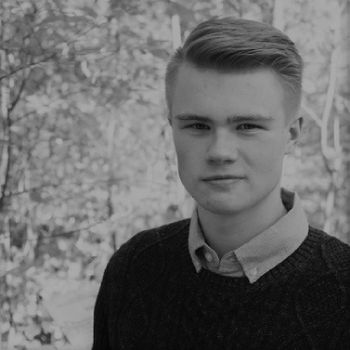'HOUSTON, WE HAVE A PROBLEM!'—Duke Divinity School prof calls on American Muslims to address anti-Semitism
An associate professor at Duke Divinity School called for the American Muslim community to address Anti-semitism.
The Twitter thread was posted after the hostage crisis at a Texas synagogue.
In response to the recent hostage crisis at a Texas synagogue, Duke Divinity School professor Imam Abdullah Antepli said that North American Muslims need to address anti-Semitism within their community.
On Saturday, 44-year old Malik Faisal Akram, a British national, attacked Congregation Beth Israel in Colleyville, Texas and took four people hostage. All four hostages, including Rabbi Charlie Cytron-Walker, were rescued safely. Akram was killed in a standoff with police and the SWAT team.
In a Facebook live stream of the service, Akram threatened to detonate a bomb and demanded that U.S. authorities release Pakistani neuroscientist Aafia Siddiqui, a woman with suspected ties to al-Qaida and who has been convicted of attempting to kill U.S. Army officers in Afghanistan. She is currently serving an 86-year sentence in Fort Worth, Texas.
“HOUSTON, WE HAVE A PROBLEM!” Antepli wrote in a Twitter thread. “Now that, alhamdulillah, the hostages are rescued unharmed and safely reunited with their loved ones…We North American Muslims need to have the morally required tough conversations about those ‘…polite Zionists are our enemies…The Benjamins!!!...’ voices and realities within our communities.”
“We MUST! Without ands and buts, without any further denial, dismissal and or trivializing of the issues…” Antepli continued. “We need to honestly discuss the increasing anti-Semitism within various Muslim communities.”
Antepli’s comments appear to harken back to comments made by Congresswoman Ilhan Omar. In 2019, Omar was accused of anti-Semitism after tweeting “It’s all about the Benjamins” along with statements critical of Israel and AIPAC. She shortly apologized for the comment but doubled down on her opposition to the Israeli lobbying group.
Imam Antepli did not level accusations against anyone by name in his thread but urged members of the Muslim community generally to root out anti-Semitism.
“We Muslims living North America undeniably have an increasing anti-Semitism problem and seemingly we have yet to even begin to address the issue honestly, morally and accurately…but again we have to,” Antepli wrote. “I am really sick and tired of the overall defensiveness and tribal nature of our reaction to this alarming internal problem. We are better than this! We can no longer pretend the problems of anti-Semitism within us does not exist.”
The Council on American-Islamic Relations (CAIR) also condemned the attack, with National Deputy Director Edward Ahmed Mitchell writing, “This latest antisemitic attack at a house of worship is an unacceptable act of evil. We stand in solidarity with the Jewish community, and we pray that law enforcement authorities are able to swiftly and safely free the hostages. No cause can justify or excuse this crime.”
[RELATED: Lehigh economics professor draws ire for saying ‘poverty is not determined by race’]
Mitchell affirmed this statement to Campus Reform.
At the end of the thread, Antepli directed readers to a podcast he recorded with the Shalom Hartman Institute entitled “Jews and Muslims in a Fractured America,” adding, “There is a moral call for action for the soul of Islam and Muslim identities in North America and our place as a minority faith communities here at home.”
Antepli is an associate professor of the Practice of Interfaith Relations at Duke Divinity School and a senior fellow on Jewish-Muslim Relations at Shalom Hartman Institute in Jerusalem. There he founded and co-directs the Muslim Leadership Initiative to “build relationships of understanding, respect, and trust between North American Muslim and Jewish communities.”
“In his multiple roles at Duke, Imam Abdullah engages students, faculty, and staff across and beyond campus through seminars, panels, and other avenues to provide a Muslim voice and perspective to the discussions of faith, spirituality, social justice, and more,” his bio explains. “Imam Abdullah also serves as a faculty member in the Duke Divinity School, teaching courses on Islam and Muslim cultures.”
Neither the university nor Antepli replied to Campus Reform’s requests for comment.

